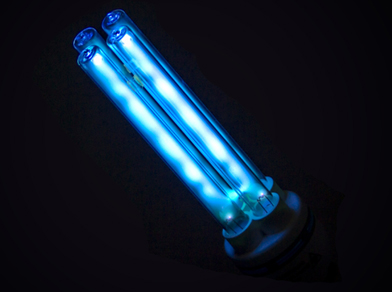Indoor Air Quality Tips for Immunocompromised People
Safer Indoor Air for Immunocompromised Families
When this viral pandemic began in 2020, cleaning methods and indoor air quality became hot topics. Hand washing methods, buying runs on cleaning supplies, and questions about wearing masks inside your home were real issues. While things seem to be slowly changing, everyone is more cautious and stays alert to the latest updates.
But many families were dealing with airborne threats from common situations before 2020. When a family member faces severe allergies, suppressed immune systems, or medical treatments, such as radiation or chemotherapy for cancer, making your home a safe environment was a daily challenge.
If you need to keep your home as sterile as possible, here are some helpful tips to consider.
Change Your Cleaning Supplies
Harsh chemicals are not the only solution to keeping a home clean and safe, and they often contribute to poor indoor air quality. Common household items, including vinegar and hydrogen peroxide, can be safe alternative cleansers, without adding harmful aerosols to the indoor air. You might also find it quite satisfying, natural air fresheners, soaps, and lotions will make your home a safer environment.
Is your vacuum cleaner enough?
Vacuum cleaners become necessary tools in homes with health concerns; removing dust, pollen, and dander from soft surfaces is essential. However, vacuum cleaners can contribute to poor air quality if the vacuum filter is not fine enough to trap small particles rather than recirculating them. Do some research and find the right vacuum cleaner, but make sure it has a High-Efficiency Particulate Air (HEPA) filter. A HEPA filter will collect the vast majority of airborne particles before they settle on surfaces again.
Watch out for Mold!
Mold and mildew are common fungi in every part of the world. Airborne microscopic spores, similar to plant seeds, are carried on the wind and they will make their way into your home. A few spores are not a problem. Cleaning surfaces and vacuuming regularly will take care of most spores.
However, spores are looking for wet, warm surfaces and your home has a few of these. If ignored, mold and mildew can rapidly reproduce and this is a problem. A lot of mold or mildew spores will cause breathing issues in humans and pets, whether healthy or compromised.
- Fix any leaking plumbing fixture immediately.
- Use bathroom fans to remove excess humidity.
- Check under sinks and around toilets for puddles or condensation
- Attics, basements, crawl spaces, and garages should also be inspected
- Attack mold growth quickly, before it can spread.
Maintain your HVAC system well promotes better indoor air quality
Your HVAC system is working hard to keep your indoor air clean, dry, and safe. Work with the system to maximize the benefits.
Use a quality air filter—HEPA filters are available for HVAC systems as well.
Make sure to change the filters as often as needed—at least every three months.
Schedule a regular preventative maintenance visit with your heating/cooling professional, to ensure the system is clean and functioning properly.
Clean your ductwork as often as needed. They become a reservoir for all kinds of particles when neglected.
Consider an air purifier
If all of your efforts to keep ahead of cleaning seem fruitless, research additional filtration, UV lights, ionic filters, and external air purifiers. Very good HEPA filters are remarkable, but if your situation requires more, pursue your options until you find what works for your family’s needs.
AllCool has the professional experience to answer questions, make suggestions and point you to the right product(s).
Do You Have an Immunocompromised Family Member Who Needs Proper Indoor Air Quality?
Let us know how we can help with your indoor air quality concerns, call AllCool AC & Heating at 281-238-9292 or contact us via email.
